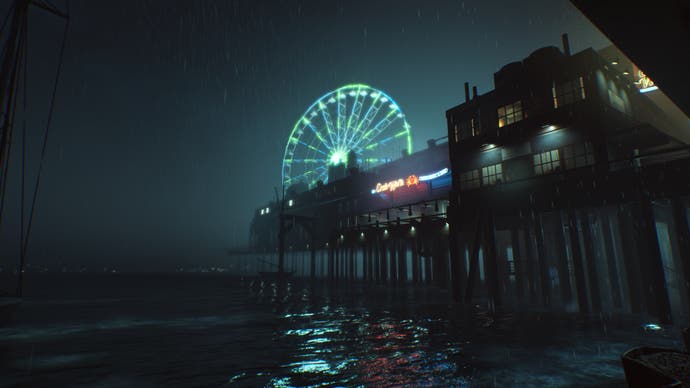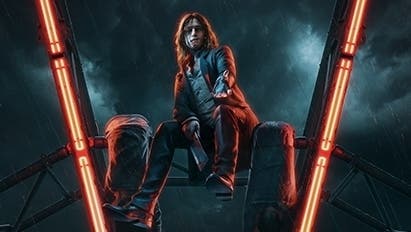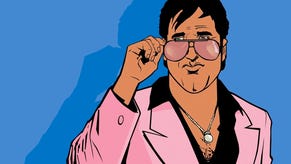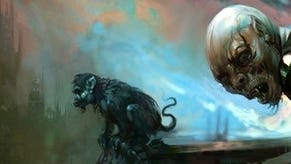Vampire: The Masquerade - Bloodlines 2 is a darkly fascinating immersive sim
Paradox published sequel coming to PC and consoles in 2020.
It launched back in November 2004, is one of the most cherished PC games of all-time and people have been clamouring for a follow-up the 15 years since - and today, at GDC, that finally became a reality. Yes, Vampire: The Masquerade - Bloodlines is getting a sequel, and it's coming to PC and consoles in 2020.
You might have guessed as much from the recent teases made by publisher Paradox, or possibly hoped as much back when Paradox acquired the rights back in 2015, though it's all come together remarkably quickly.
"When we as Paradox acquired the IP, we saw Bloodlines as the crown jewel," says producer Christian Schlutter. "We wanted to do a new Bloodlines, but we also knew there were a lot of expectations connected to it, not just from the fans but also from us. We actually thought we'd hold off on doing Bloodlines 2, because we wanted to do it right - then these guys come along and have the perfect pitch, with the original writer on-board too. It all happened far faster than we expected."
Those guys, by the way, are developers Hardsuit Labs, previously of Blacklight: Retribution fame but also assisted by none other than Brian Mitsoda, formerly of original Bloodlines developer Troika Games and who's working alongside Cara Ellison (who, full disclosure alert, is a friend of Eurogamer) to pen the sequel.

"It's great to come back to it," says Mitsoda. "It's of course a bit daunting because of the fan expectation over the last 15 years - but the way it came together, we developed the story really quickly. We started working on it as soon as we heard that Paradox had bought the World of Darkness IP."
The result is a little way off from release, though a 30 minute hands-off demo showed that it stays true to the original in all the important ways. Set in modern day Seattle, you're playing a thin-blood vampire, recently turned as a result of the Mass Embrace in which a group of rogue vampires attacking humans. You start your journey being interrogated in a court that then bursts dramatically into flames, plunging you into the world itself and the open-ended play that's at the very heart of Bloodlines.
You won't choose your clan at the very beginning - that comes later, as will details of what exactly those clans will be, and how many of them to expect - but instead are offered the choice between three starting abilities. Nebulation grants you the ability to turn into mist, Mentalism allows you to manipulate objects from afar while Chiropteran lets you defy gravity and glide through the air. For this demo the latter skill is chosen, though environments are clearly built to accommodate each skill and plenty more play styles besides.
Because, out in the wild, this Bloodlines sequel is every bit the modern immersive sim - think Deus Ex or Dishonored - with a healthy dash of its own atmosphere and style. "The original obviously came out in 2004," says Mitsoda. "We identified what we needed to do, things we really needed to improve. Obviously combat was one of the things from the first one that was really not very good. But also the tone of the game - it's 2019 now. We have to update the tone, we're not going to make a 2004 game in 2019, we're going to approach subjects a little differently and with a lot more research and respect than was done back then."
There are some smart new mechanics in play as you go about picking up side-quests or pushing the main questline forward as you see fit. As a vampire you'll have to feed in order to survive, and in Bloodlines 2 the idea is that you are very much what you eat - stalk out some prey and, via the detective mode-esque heightened senses available to you, you can see how characters have different hues and resonances, tied into their emotional state. Feed on someone who's angry and you'll consume that anger too, leading to temporary perks. Constantly feed on people of a certain emotion and you can get access to more permanent buffs too.
Combat is also improved. Guns are only ever short-term solutions, and instead Bloodlines 2 wants to emphasise that the best weapon in your arsenal is you yourself, and the abilities afforded to you as a vampire. So you can scale walls and take advantage of the verticality implicit in your skillset, and played up to by the environmental design, to gain the upper hand. The pugilism itself has a sense of athleticism, occasionally cutting to a third-person view as you perform a leg-sweep and cartwheel over your foe.

Then there's the element of social stealth as you try not to break the masquerade through your actions. Get too supernatural out in public and you'll draw attention, with police eventually being alerted. Repeatedly break the masquerade and the face of the city will change, with ordinary citizens choosing not to risk the streets while the police presence grows, as does that of other vampires hunting you down.
What's really impressive about this first early look at Bloodlines 2, though, is the city itself. You first emerge at the feet of Miner's Landing - a knowing call-back to Santa Monica pier in the first Bloodlines - and explore a city with a pointedly layered history, from the underground streets left in the aftermath of the Great Seattle Fire of 1889 to the divided lines on the streets above. "There are multiple factions in the city," explains Mitsoda. "What we wanted to do with the story was really reflect modern Seattle. There's really a struggle for the identity of Seattle right now, the music and cultural place that it was traditionally and the corporate and tech business that's transformed the city. There's this idea of how much Seattle can change before it's no longer Seattle. So we made the factions aspects of the old and the new. You can work for different factions, unlike the first game, you can switch factions and you can piss off factions to the point where they won't work with you anymore. We really wanted to give you the ability to change the story the way that you want it to go - you might see things a different way by working with a faction.
"We're based in Seattle - for me, I really wanted to use the history of Seattle, and bring that in as much as possible and make Seattle a character in this game. When it's shown in movies it's kind of glossed over, shot in Vancouver with a CGI Space Needle. There's really not any actual Seattle identity in there. We want to give people the real Seattle experience. Well, with the world of darkness layered on top."









